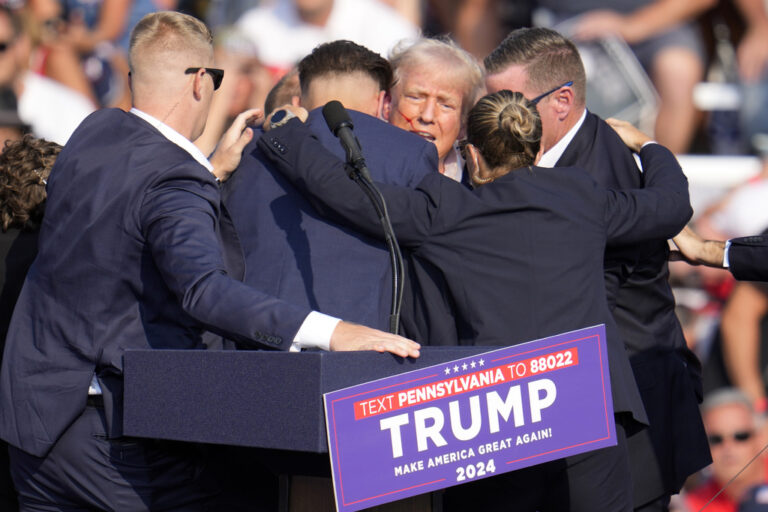Nevada’s major political parties are locked in a legal battle over a Republican effort to take control of the state Senate by recalling two freshly elected Democratic lawmakers — a tactic that Democrats warn could undermine the validity of elections across the U.S.
Experts and those from both parties say the move could be the way of the future for the losing side to keep control of influential statehouses. In Nevada, no official reason was given for the recalls, and none was required. Some conservatives have been open about hoping Republicans gain partisan advantage.
Republicans in 2016 lost hold of the Nevada Senate, which Democrats now control by an 11-9 margin. The GOP then circulated petitions to recall two Democratic senators and one independent who caucuses with them.
Republicans gathered enough signatures to launch recall elections of the Democrats, Nicole Cannizzaro and Joyce Woodhouse, who had been narrowly elected the previous year from swing districts in the Las Vegas area.
Democrats launched a counteroffensive. They sued in federal court, arguing the recalls violate the U.S. Constitution. They also persuaded thousands of people who had signed the petitions to withdraw their signatures — likely dropping the petitions below the threshold needed to qualify for the ballot.
Whether the signatures are allowed be withdrawn is at the heart of the case that will be heard in court Wednesday.
National Democrats fear the Nevada effort, if successful, could become a template for Republicans seeking to hang on to power in statehouses nationwide, especially if the midterm elections this year lead to losses in some of the 68 legislative chambers the GOP controls.
Democrats have drawn parallels to other recent steps Republicans have taken to retain power in the states.
In Pennsylvania, the Republican-controlled Legislature this week threatened to impeach the elected Democrats on the state Supreme Court, who ruled that the GOP had improperly drawn the congressional districts.
In North Carolina, the GOP-led Legislature has tried to wrest control of how the state administers elections from the newly elected Democratic governor.
National Democrats have invested heavily in Nevada to try to undermine the recall and mount legal challenges.
“We are in a new frontier in that they are using the recall statute to change an election,” said Marc Elias, a prominent Democratic election attorney who represented Hillary Clinton’s presidential campaign.
But Joshua Spivak, who tracks recall elections and is a senior fellow at the Hugh Carey Institute at Wagner College, said the Nevada case is not that unusual.
He noted that Democrats in 2012 briefly seized control of the Wisconsin Senate after a series of recalls sparked by Gov. Scott Walker’s attacks on public sector unions. While Nevada Republicans have not cited a single big decision like the Wisconsin union vote to justify their effort, Spivak said that’s in line with history.
“It is a feature of the recall to just kick someone out for partisan benefit,” Spivak said.
Lawyers for the recall effort did not return multiple calls for comment Tuesday. They work in the law firm run by Republican Nevada Lt. Gov. Mark Hutchison, whose office said it would not comment on the campaign.
Logan Churchwell of the conservative Public Interest Legal Foundation, which intervened on behalf of the recall, stressed that Nevada law allows recalls and that Democrats are trying to limit voting.
“Nevada places few barriers on the electorate to trigger a recount,” Churchwell said. “It’s curious that the Democrat Party’s attorneys would label such a system and its uses as frivolous when their actions are undemocratic by definition.”
But the state’s Republican governor, Brian Sandoval, has voiced alarm at the recalls.
“There really wasn’t, I think, a legitimate reason for the recalls,” Sandoval told The Nevada Independent news website last year. “So it just kind of escalates the politics, mean-spiritedness politics. I think both parties will now use it on a regular basis, and that’s not what Nevada politics has ever been and that’s not what it should be.”
(AP)











